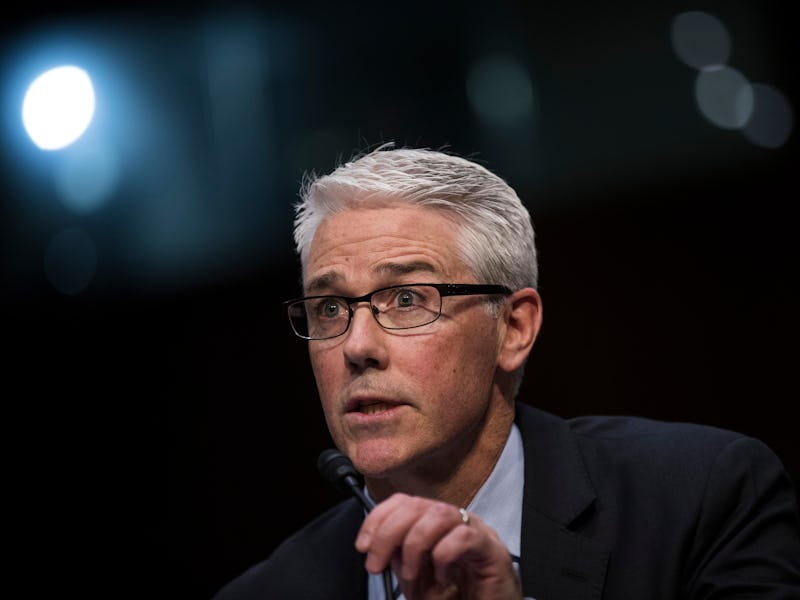5 Bonkers Quotes from Twitter, Facebook and Google’s Testimony Before Congress
Senators took the internet giants to task on Wednesday.

On Wednesday, the Senate Intelligence Committee questioned representatives from Facebook, Twitter and Google about their role in Russia’s attempts to disrupt the 2016 presidential election, and resulting comments were ridiculous. Maybe enough to make one question the future of any democracy. Senators — some the targets of negative ads made by Russian bot farms themselves — spent a lot of the hearing laying into the three companies for failing to respond to the issue long ago.
While they took the three companies to task for the second day in a row on Capitol Hill, here are some of the more dramatic moments that transpired over the hearing:
5. “Candidly, your companies know more about Americans than the United States government does.”
“…and the idea that you had no idea that this was happening strains my credibility,” said Senator Mark Warren. After complaining that it took the companies until July and August to really cooperate and present information to the committee, Sen. Warren asked if the Google, Twitter and Facebook would now continue to work with the American government and present them with documents and information. “Frankly your first presentations were less than sufficient and showed in my mind a lack of resources, a lack of commitment, and a lack of genuine effort,” he said.
All three agreed to be more forthcoming moving forward.
4. “120,000 Russian based posts on Instagram.”
Warren brought up that in the last 48 hours, new information has surfaced about Instagram’s ability to disseminate dubious disinformation, and Warren wanted to know the numbers. “The data on Instagram is not as complete,” said Facebook General Counsel Colin Stretch. “But the data we have is that beginning in October, 2016, those Instagram posts reached an additional 16 million people.”
Stretch said that he figured that prior to October, Russian posts only reached about four million people. But that still brings us up to around 150 million people exposed to Russian-backed content via Facebook — which is a big number.
3. “What we’re talking about is a cataclysmic change, what we’re talking about is cyber warfare.”
Senator Dianne Feinstein was dramatically direct when she addressed Strech,as well as Google’s vice president and general council Kent Walker and Twitter’s acting general council Sean Edgett. She explained that a “major foreign power” (Russia) is equipped with the sophistication and ability to sow conflict in another country. Feinstein was also not satisfied with what the three companies’ said during Tuesday’s hearing on their plans to combat the situation. “I went home last night with profound disappointment. I asked specific questions, and I got vague answers.”
Feinstein said that the creators of these platforms have a huge responsibility, essentially because their creations are being misused. “You have to do something about it, or we will,” she said.
2. “We don’t require you to verify your identity.”
Senator Martin Heinrich could not get his head around the fact that Twitter does not require users to verify their true identity when they sign up to use the platform — a great example of the disconnect that was occurring at times between committee members’ understanding of social media platforms and the way they actually function. Edgett explained that activists and embedded journalists often use pseudonyms to post information on Twitter and avoid prosecution. Also, without Twitter’s user policies allowing for non-personal accounts, we wouldn’t have every joke account that actually makes the platform enjoyable to use. In short, some of the concerns of the committee, if addressed, would change the social ecosystem of these platforms. At the same time, it’s also a great example of just how difficult it is to really police Twitter and identify nefarious actors.
1. “It certainly seems like they got their money’s worth.”
Senator Roy Blunt asked Stretch to put some dollar figures on the money spent on political ads. While Russian actors spend $46,000 before the election on ads, according to Stretch, it was revealed that the Clinton and Trump campaigns spent about $81 million. Although this hearing has clearly become about more than just the 2016 election, it’s an interesting fact to consider.